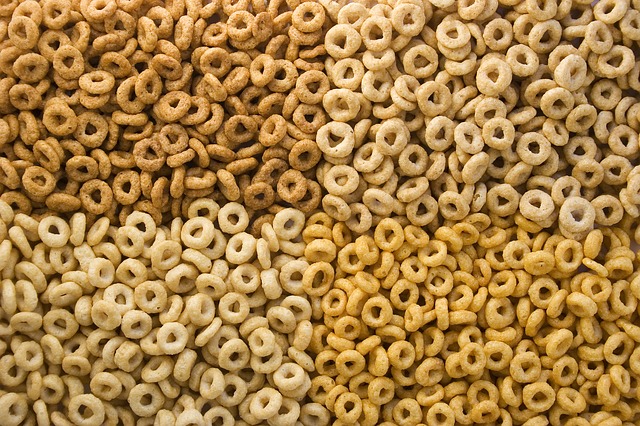
Look at This Crap Cheerios Is Trying to Pull
Protein is the macronutrient of the moment, embraced by Paleos, low-carb enthusiasts, and other dieters. Sugary breakfast cereals, meanwhile, are out—sales are in the midst of a long, slow decline. Might adding the word "protein" to a hoary old cereal brand spark a sales renaissance? That's the experiment General Mills launched last year when it debuted Cheerios Protein. "I think the protein trend is real. I think it started with [the Atkins diet] back in the day, leveled off and now is gaining steam again," a General Mills exec told The Wall Street Journal at the time.
There's no word on how the product is doing at the supermarket checkout. "We do not release individual product sales data," a company spokesman told me. But the Center for Science in the Public Interest has taken a hard look at the product's label. In a class-action lawsuit filed in a California federal court, CSPI alleges that "General Mills falsely and misleadingly markets Cheerios Protein to children and adults as a high protein, healthful alternative to Cheerios."
November 11, 2015 | Source: Mother Jones | by Tom Philpott
Protein is the macronutrient of the moment, embraced by Paleos, low-carb enthusiasts, and other dieters. Sugary breakfast cereals, meanwhile, are out—sales are in the midst of a long, slow decline. Might adding the word “protein” to a hoary old cereal brand spark a sales renaissance? That’s the experiment General Mills launched last year when it debuted Cheerios Protein. “I think the protein trend is real. I think it started with [the Atkins diet] back in the day, leveled off and now is gaining steam again,” a General Mills exec told The Wall Street Journal at the time.
There’s no word on how the product is doing at the supermarket checkout. “We do not release individual product sales data,” a company spokesman told me. But the Center for Science in the Public Interest has taken a hard look at the product’s label. In a class-action lawsuit filed in a California federal court, CSPI alleges that “General Mills falsely and misleadingly markets Cheerios Protein to children and adults as a high protein, healthful alternative to Cheerios.”
In fact, CSPI claims, Cheerios Protein offers just marginally more protein per equivalent serving than the old product—plus, it claims, a startling 17 times more sugar. Insult to injury, General Mills charges a premium for the product: “about 70 cents more per box at stores like Walmart, Giant Foods, and Safeway,” CSPI claims in a press release. The lawsuit demands damages for the plaintiffs (aggrieved Cheerios Protein buyers) and an “injunction to stop General Mills’s false and misleading marketing practices with regard to Cheerios Protein.”
“We don’t normally respond to these publicity-seeking lawsuits from CSPI—but we do reject their comparison,” a General Mills spokesman wrote in an email. He added:
Original Cheerios does contain 3 grams of protein per serving—and it’s clearly a great cereal choice. Cheerios Protein contains 7 grams of protein per serving – and it does qualify as a good source of high-quality protein under the FDA standard.
So, who’s right? Turns out, General Mills is playing games with serving sizes on its labels.
